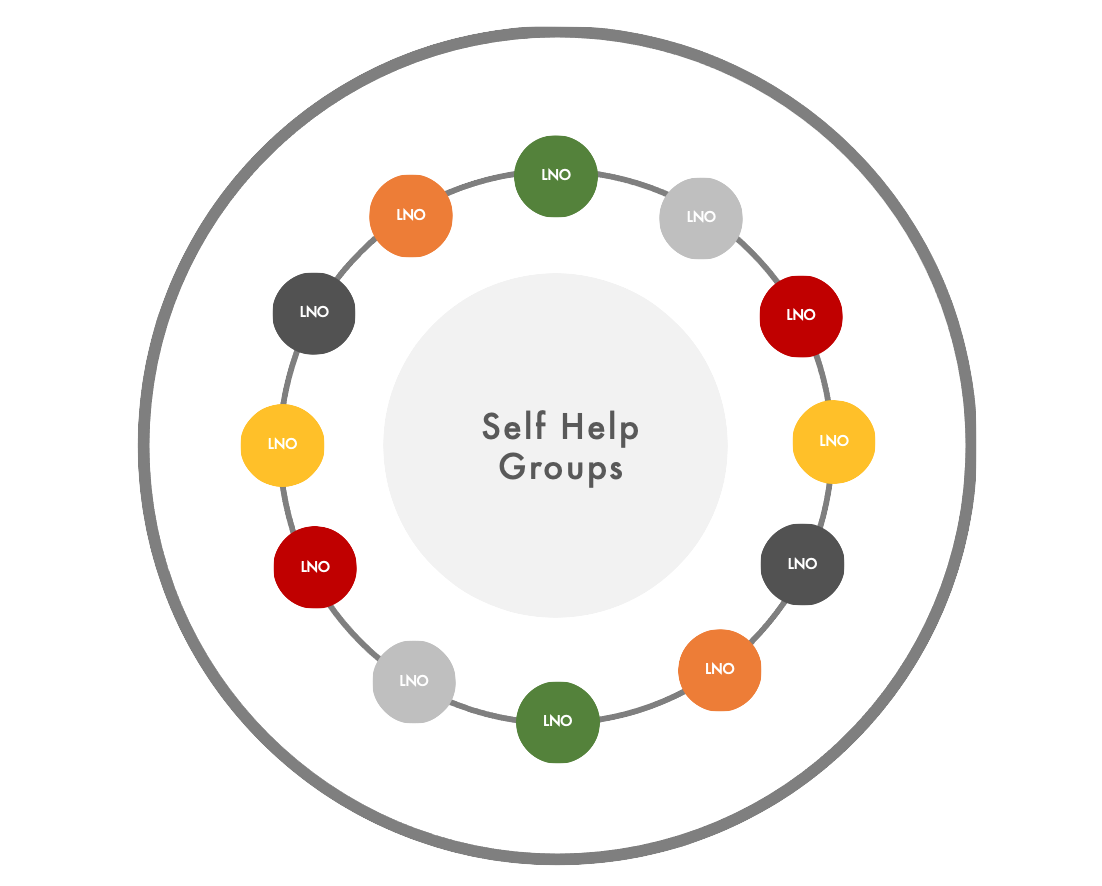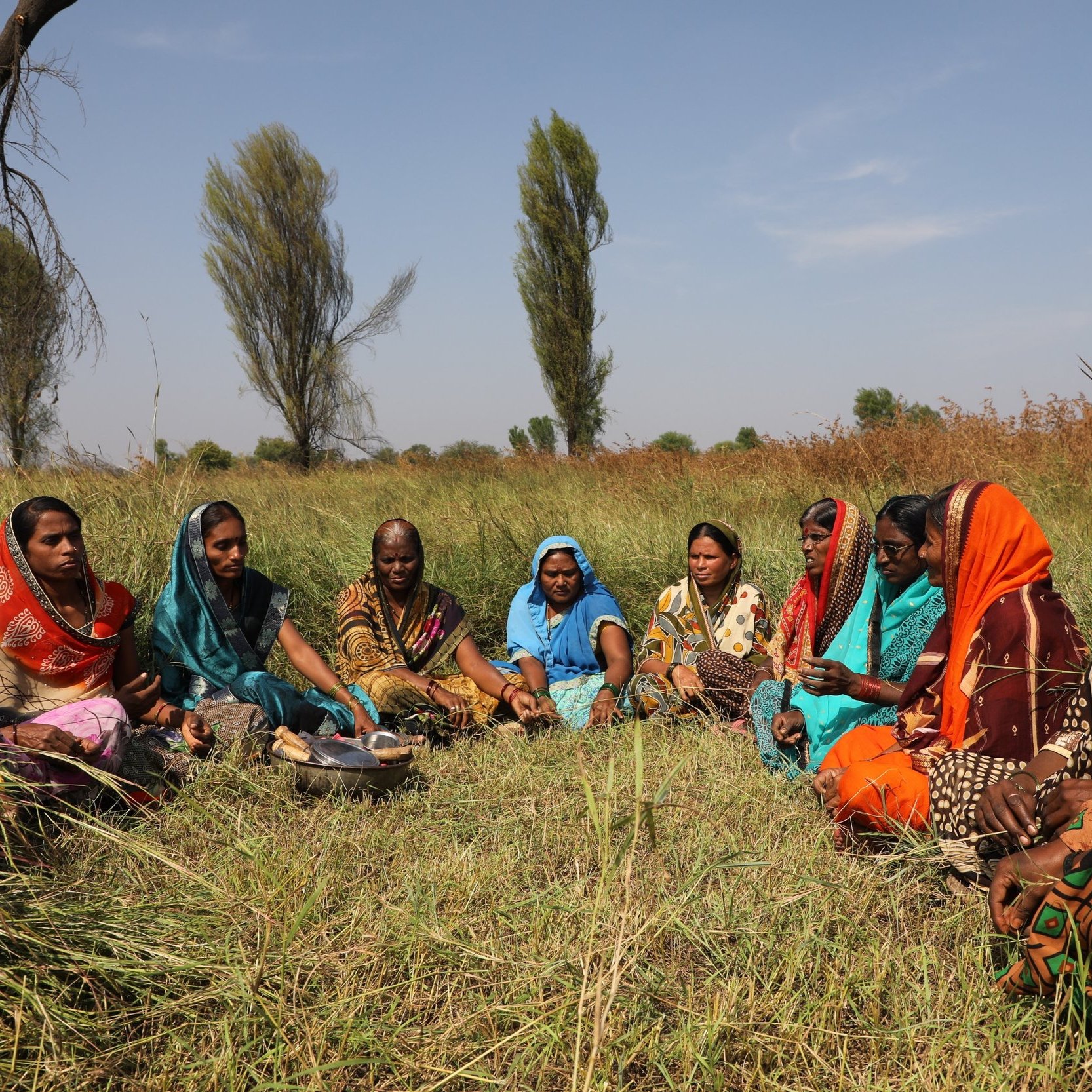Enabling Environment
Meeting community needs is a holistic process.
A supporting enabling environment plays a key role in facilitating the work of SHGs by creating a positive feedback loop. A conducive environment can help SHGs to meet the needs of their members more effectively, and SHGs in turn work in concert with local stakeholders to influence policy and advocate on behalf of their communities. We work directly with the public and private sectors so that the necessary policies, processes and tools are in place for local actors to access the resources they need. We partner with donors (bilaterals, multilaterals and large scale foundations), intermediaries and practitioners (INGOs and UN agencies) to help revise processes that often systematically exclude significant direct investment in local actors.
Self Help Groups. SHG members are part of the community, and they listen to the shifting needs and priorities of their families and neighbors, working together to address what they can and advocate with local government officials for critical access to basic services.
Local and National Organizations. The groups are often supported by LNOs who can provide specialized services to realize the groups’ goals, like providing access to skills and training, advocating for the groups, or meeting the needs of specific community members that are too targeted for the SHG to address. Many of these LNOs in turn operate through SHGs, and other types of community groups, to deliver their programming.
Enabling Environment. When LNOs coordinate their efforts and lean into each others’ strengths they can provide a holistic scaled response to meet community needs and build an enabling environment that supports community flourishing and a healthy civil society. This enabling environment includes government policies, health systems, financial products, social protection, etc.
Strengthening the Enabling Environment
Bridging the Gap to Localize Donor Processes
International donors have a critical role to play in supporting localisation, yet to date there is no shared understanding between actors of the challenges each face nor the solutions being implemented. Effective solutions must take into account both the context in which programming takes place, and the institutional operating environment within donor agencies. In partnership with the Warande Advisory Centre, ODI and EPIC-AFRICA, we are working with OECD DAC to build an evidence base that will inform DAC member policies, delivery mechanisms and practices. We aim to examine what collective and contextualised solutions are possible to change behaviour and drive progress towards locally led development.
Embedding SHGs into Humanitarian Programming
We are working with FCDO’s country office in Yemen to examine the advantages of embedding women’s Self Help Groups into their humanitarian and social protection investments as a strategy to help localize their programming.
Developing IOM’s Global Localization Framework
We are working with the International Organization for Migration (IOM) to create an actionable global framework so their country and field offices can operationalize IOM’s localization commitments in their humanitarian response.





